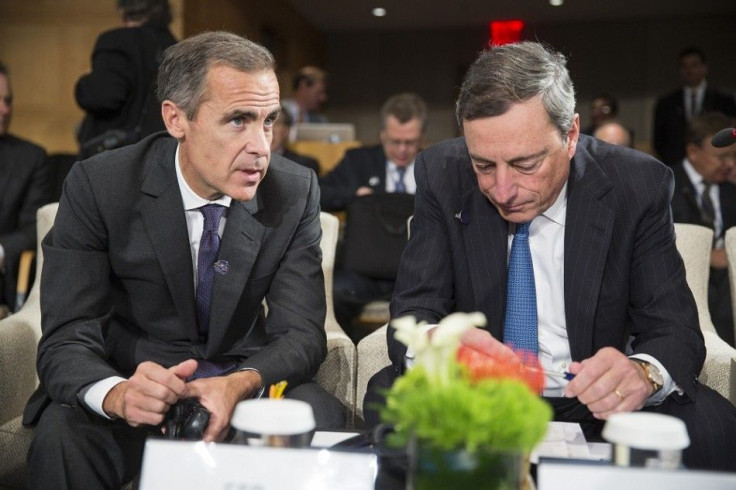Bank of England Facing Embarassment As EU Exit Project Revealed By An E-Mail Gaffe

The Bank of England has got embroiled in an e-mail mess and is facing embarrassment as one of its staffers "inadvertently" sent details of its plans on Britain’s possible exit from the European Union to a newspaper in London. According to the email, a small group of the bank's senior staff is examining the economic effects of Britain leaving the EU and Sir Jon Cunliffe, who is the bank’s deputy director for financial stability, will be heading that team, reported BBC.
The leaks were published by The Guardian. Code-named as "Project Bookend", the e-mail instructs senior officials to keep the matter confidential and fend off all queries on it by saying it concerns "a broad range of European economic issues" and avoid any reference to the forthcoming referendum. The email was sent by senior bank official Sir Jon Cunliffe's private secretary to four senior executives and was written on 21 May. The group was working under Bank deputy director Sir John Cunliffe. James Talbot, the bank’s head of the monetary assessment is also involved in Project Bookend, the report said.
Carney’s Embarrassment
For chairman and Canadian fiscal wizard Mark Carney, the e-mail leak has thrown up awkward questions from the U.K. Parliament, following the embarrassing revelation that the Bank is secretly planning for Britain’s exit from the European Union, reports National Post.
Project Bookend, undermined Carney’s zeal for transparency as the spokesman accidentally emailed strategy documents to an editor of a newspaper which also mentions the guidance on how to evade questions from the public.
Referring to the leaked e-mail, the bank said in a statement: "Today, information related to planned confidential Bank work on the potential implications of a renegotiation and national referendum on the U.K.'s membership of the European Union made its way into the public domain, due to an internal email sent inadvertently to an external party." The BoE refused to talk about its assessment in advance but offered details "at the appropriate time", adding it made similar plans to face the implications of the Scottish referendum in 2014.
Cameron’s EU Meeting
Meanwhile, Deutsche Bank, the euro zone's second-largest bank by assets with large operations in Britain, said that it is preparing for a possible British exit from the EU. It showed expectations on referendum on the referendum are intense as Prime Minister David Cameron met European counterparts first time, since his general election victory at a summit in Latvia’s Riga. The PM conceded that securing a deal would take "patience and tenacity" but refused to rule out Britain’s exit from the EU if his renegotiation failed.
(For feedback/comments, contact the writer at k.kumar@ibtimes.com.au)





















